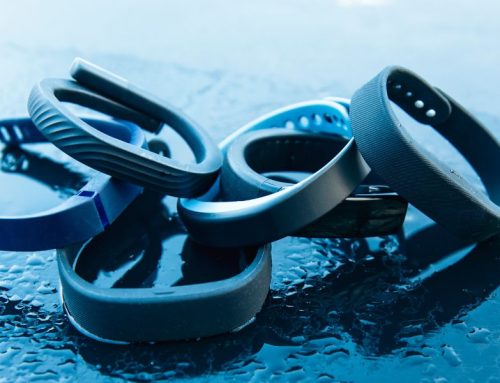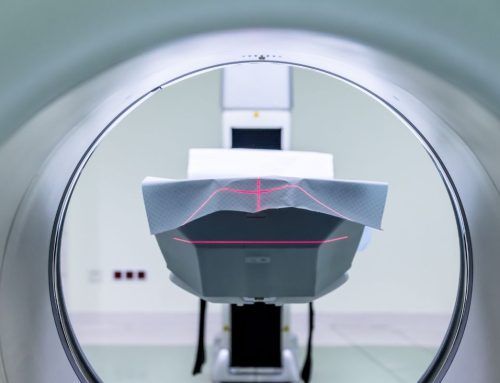Sustainability is not just a buzzword anymore. It’s a crucial aspect of modern manufacturing that can’t be ignored. Consumers are more conscious than ever about the environmental impact of the products they buy and are keen to put their money where their values are. In fact, Simon Kucher’s Global Sustainability Study 2021 shows 65% of consumers worldwide are willing to dig deeper into their pockets and pay more for products with sustainable and environmentally friendly packaging.
The Role of Rubber in Medical Manufacturing
Rubber is used extensively in the medical manufacturing industry due to its unique properties, which include flexibility, durability, and resistance to heat, chemicals, and electricity. Here are some of the key applications of rubber in medical manufacturing:
Medical Gloves: One of the most common uses of rubber in the medical field is in the production of gloves. Healthcare professionals use these gloves to prevent the spreading of infections and diseases during medical procedures.
Catheters and Tubes: Rubber is used to manufacture various types of catheters and tubes due to its flexibility and biocompatibility. This includes urinary catheters, endotracheal tubes, and feeding tubes.
- Seals and Gaskets: Rubber is a primary material in the production of seals and gaskets for various medical devices and equipment. These components ensure a tight seal and prevent leaks in devices such as ventilators, dialysis machines, and infusion pumps.
- Medical Device Components: Many medical devices contain rubber components. For example, rubber is used to produce parts for respiratory devices, insulin pumps, and heart valves.
- Surgical Equipment: Rubber is used in various surgical tools and equipment, such as handles for surgical instruments, due to its grip and comfort.
- Diaphragms for Respiratory Devices: Rubber diaphragms are used in devices like inhalers and respirators.
- Contraceptive Devices: Certain contraceptive devices, like diaphragms and condoms, are made from rubber.
These are just a few examples of how rubber’s versatility of rubber makes it a vital material in medical product manufacturing.
The Environmental Impact of Rubber in Manufacturing
Traditional rubber manufacturing comes with its fair share of environmental challenges. The process often involves high energy consumption, significant water usage, and waste generation. Moreover, the disposal of rubber products at the end of their life cycle can contribute to landfill waste, as rubber is not readily biodegradable.
This ties into the broader issue of plastic pollution, a concern that’s increasingly on the minds of consumers. Much like discarded rubber products, plastic waste accumulates in landfills and the natural environment, leading to significant pollution problems. Research shows that consumers are becoming more conscious of this issue, with many associating plastic with ocean pollution and harmful packaging.
This growing awareness is influencing companies’ purchasing decisions, with medical equipment buyers increasingly favoring products that are packaged sustainably and made by companies that prioritize eco-friendly practices.
Sustainable and Eco-Friendly Solutions in Rubber Manufacturing
As you navigate the evolving landscape of the medical manufacturing industry, it’s essential to consider the role of sustainable and eco-friendly practices in rubber manufacturing. These practices are not just about meeting regulatory requirements or ticking a box for corporate social responsibility. They’re about fundamentally changing how we produce rubber to minimize environmental impact and meet the growing consumer demand for sustainability.
Sustainable rubber manufacturing can take many forms. It might involve using renewable or recycled materials, reducing energy and water consumption during production, minimizing waste, or implementing end-of-life recycling programs for rubber products. These practices can significantly reduce the environmental footprint of rubber manufacturing, contributing to a more sustainable future.
But the benefits of sustainable rubber manufacturing extend beyond environmental impact. By aligning your manufacturing processes with sustainable practices, you can meet the growing consumer demand for eco-friendly products.
Implementing Sustainable Practices in Rubber Manufacturing
There’s little point in talking about sustainability without showing proof of action. At Midwest Rubber, we are committed to finding and implementing solutions that reduce our environmental impact and actively incorporate these into our processes. Evidence of this can be found in our design and engineering approaches. By collaborating closely with customers from the early stages of product development, we identify opportunities to eliminate waste, increase efficiency, and design for the best result. This proactive method allows us to integrate sustainable practices from the ground up, ensuring that our rubber solutions are not only high-quality and practical but also environmentally responsible.
For example, in medical device production, we prioritize using sustainable materials wherever possible. We also strive to minimize energy and water consumption during manufacturing, and we’re continually exploring innovative ways to reduce waste. Our goal is to provide rubber solutions that meet your specific needs while aligning with your sustainability objectives.
The Benefits of Sustainable Rubber in Medical Manufacturing
Embracing sustainable rubber manufacturing can bring a host of benefits to your business. Let’s delve into some of these advantages.
Firstly, sustainable practices can lead to significant cost savings in the long run. By reducing waste and improving efficiency, you can lower your production costs. Plus, using recycled or renewable materials can often be more cost-effective than relying on new, non-renewable resources.
Secondly, sustainability can greatly enhance your brand reputation. As we’ve discussed, consumers are increasingly conscious of the environmental impact of the products they buy. By demonstrating your commitment to sustainability, you can position your brand as a responsible, forward-thinking player in the medical equipment industry. This can help you build trust with your customers and potentially attract new ones.
Finally, sustainability can be a crucial differentiator in the competitive medical equipment market. As more and more manufacturers recognize the importance of sustainability, those who can demonstrate a genuine commitment to eco-friendly practices will stand out. This can give you a competitive edge and help you secure contracts with buyers who prioritize sustainability.
More Than a Trend
Sustainability in rubber manufacturing for medical devices is more than just a trend – it’s a necessity in today’s environmentally-conscious world. As we’ve seen, sustainable practices can significantly reduce the environmental impact of rubber manufacturing, align with consumer preferences, and bring a host of benefits to your business, from cost savings to improved brand reputation.
Midwest Rubber Company has a rich history in medical device manufacturing. Since our beginning in the 1950s, we’ve expanded our reach and now work with medical device manufacturers across the globe. Our partnerships with respected names in the industry allow us to engineer and produce innovative rubber solutions that address highly specialized requirements.
Our commitment to quality and innovation, coupled with our understanding of sustainability and the unique needs of the medical industry, makes us a trusted partner in medical rubber manufacturing. For more information on rubber solutions for your medical equipment, please contact us at 810.376.2085.



